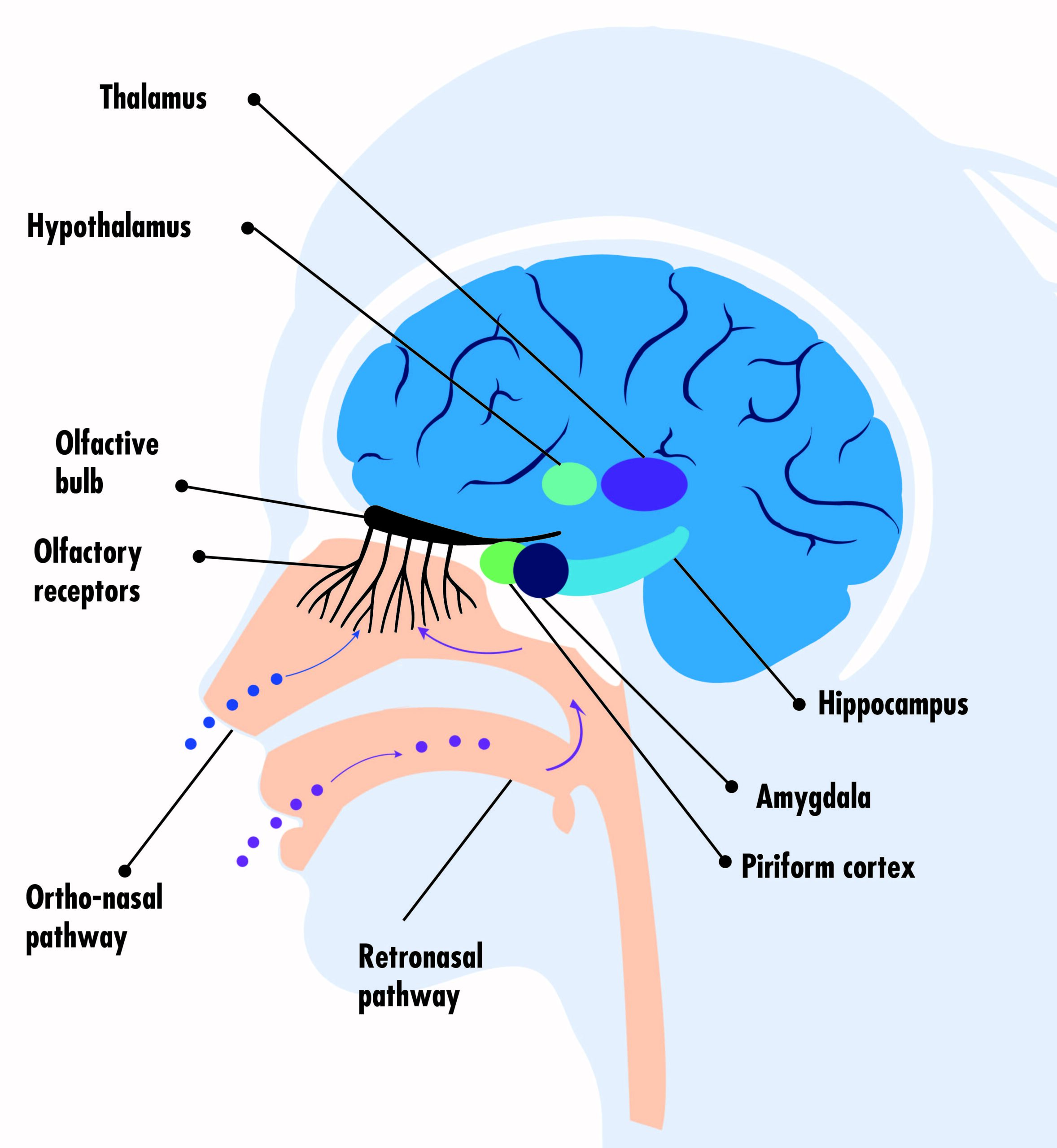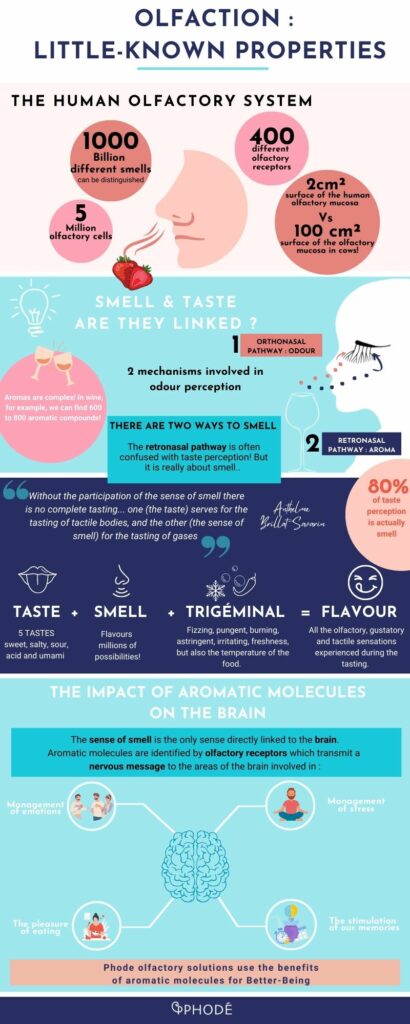
Olfaction
UNDERSTANDING THE IMPACT OF OLFACTORY MOLECULESOur mission is to explore the properties and mechanisms of action of odours & to use the benefits of olfactory molecules in everyday life. At Phodé, our research has been studying the impact of olfactory molecules on the brain for over 25 years. Today, we have succeeded in demonstrating how olfaction can positively influence the daily life of living beings. Our natural sensory formulations act via olfaction on the brain and trigger behavioural and physiological responses.

OLFACTION IS AN INNATE PRIMITIVE SENSE, DIRECTLY LINKED TO OUR BRAIN
SMELL: A SENSE WITH LITTLE-KNOWN PROPERTIES
The sense of smell is the only sensory system that can evoke memories and emotions. Why is this? It all lies in the mechanism of odour recognition. Aromatic molecules are captured by olfactory receptors. At the cerebral level, the olfactory bulb recovers the nervous message created by the olfactory receptor cells, and then draws up the chemical identity card of the odorous particle.
It is this identity card that is sent to two brain areas involved in emotions and memory: the hippocampus and the amygdala.
- The amygdala is in charge of managing emotions, pleasant or not.
- The hippocampus plays a role in long-term memory and recall.

MECHANICS OF OLFACTION
DID YOU KNOW ?
There are two distinct mechanisms involved in odour identification. The most classical pathway is the ortho-nasal pathway. The second, less well known, is the retronasal pathway. In this case, the aromatic molecules travel through the oral cavity and up to the olfactory epithelium. This mechanism is often confused with the perception of taste.
A SOLID SCIENTIFIC APPROACH
FOCUSED ON WELLNESS
In our products, we combine molecules that aim to improve the better-being of humans and animals by triggering positive emotions and activating the pleasure and reward areas of the brain.

TO FIND OUT MORE
Discover our infography on the properties of the olfactory sense.


